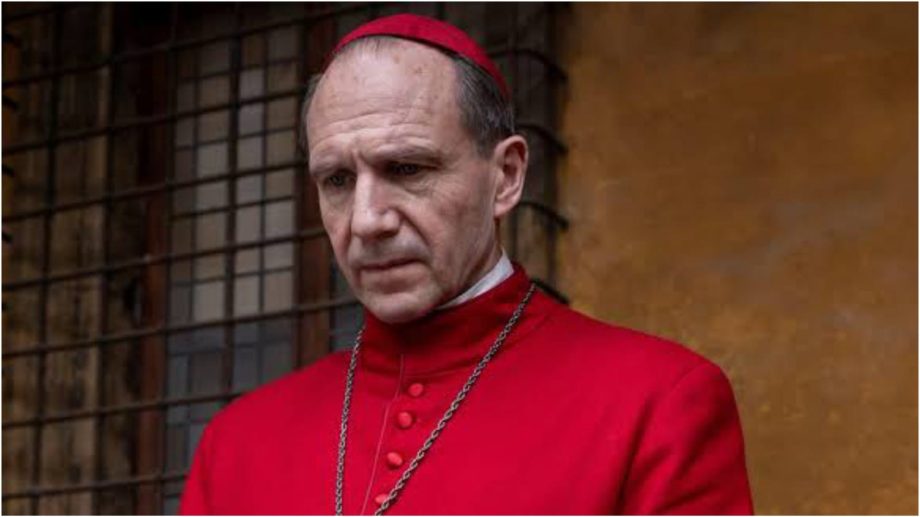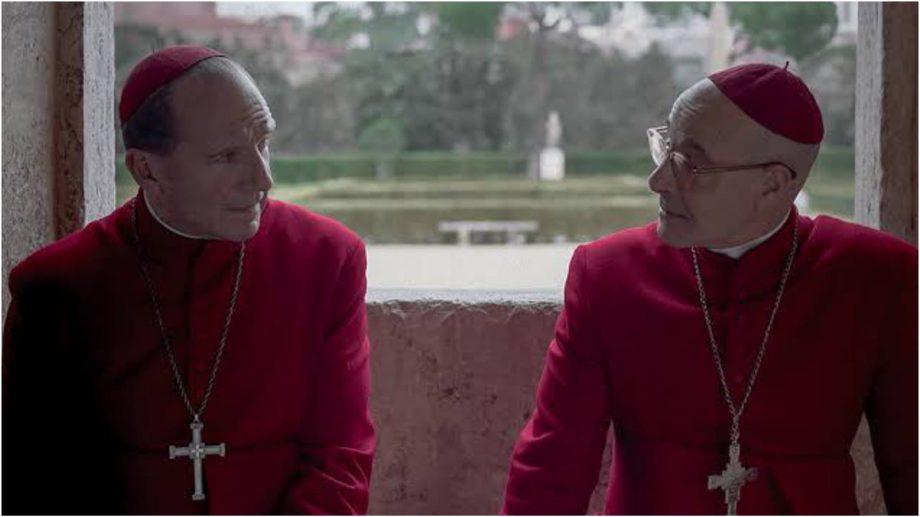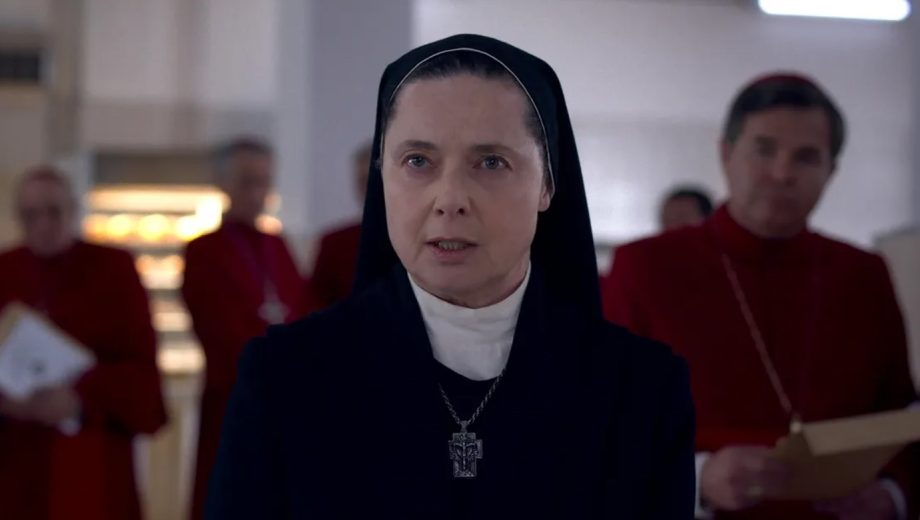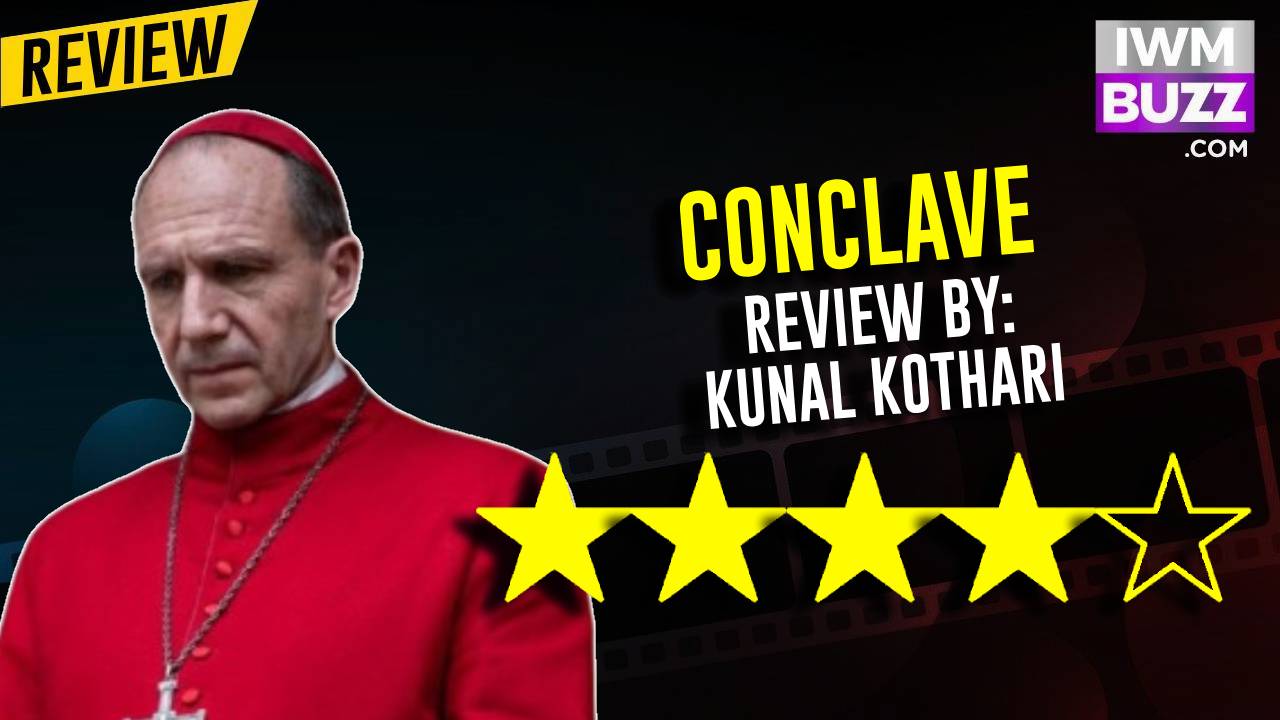Conclave
Rating: **** (4/5)
Cast: Ralph Fiennes, Stanley Tucci, John Lithgow, Isabella Rossellini & more
Directed by: Edward Berger
In theaters in India: 7th February 2025 onwards
How does one make the election of a new Pope in a conclave riveting, thrilling, and politically charged all at once? Simple—be human. After all, we, the so-called enlightened species, are the only ones blessed (or cursed) with the ability to lie, betray, manipulate, and deceive—all under the guise of righteousness.
Directed by Academy Award-winning filmmaker Edward Berger and led by the ever-underrated, immensely powerful Ralph Fiennes, Conclave is an unflinching, almost hypnotic exploration of what unfolds within the impenetrable walls of the Vatican when a new Pope must be elected following the death of the Holy Father. But make no mistake—this is not merely a procedural tale of ballots and rituals; it is a masterfully orchestrated power struggle, a dance of morality and sin, ambition and faith, manipulation and conviction.
Strip it down to its barest form, and Conclave is not all that different from a playground battle for dominance. The naïve ones, the seasoned players, the cheats, the manipulators—all vying for the same prize. But how this seemingly sacred election morphs into a pulse-pounding, popcorn-clutching experience is nothing short of astonishing
At its core, Conclave functions like any other political contest, complete with frontrunners, alliances, whispered betrayals, and shocking revelations. Overseeing this centuries-old ritual is Cardinal Lawrence (Fiennes), the Dean of the College of Cardinals, whose role is to ensure a fair and just election. Yet, as fate would have it, he soon finds himself ensnared in a web of unforeseen occurrences—ones that threaten not only his sense of duty but also his faith.

To the uninitiated, the premise might seem dry, methodical even. The first forty-five minutes, a slow-burning tension builder, may lull some into a false sense of predictability. But once the race to become “the most famous person on the planet” gains momentum, it becomes evident that beneath its sacred traditions, this conclave harbors secrets so deeply knotted, they seem impossible to unravel—until they do.
What is even more surprising is that amidst its grim, methodical tension, Conclave also manages to infuse moments of humor—sharp, biting, and eerily reflective of the world beyond the Vatican walls. When Cardinal Lawrence likens an impromptu meeting with fellow ministers to an “American political convention,” referring to the selection of the “least worst” candidate, the satire is unmistakable. Isabella Rossellini, in a splendid yet brief turn as Sister Agnes, delivers a line so piercing—bowing gently before exposing one of the candidates—that it provokes an unanticipated, almost cathartic laughter. The absurdity, the irony—it all aligns a little too perfectly with the fractured political landscapes of not just the United States but countless nations grappling with their moral crises.
Berger and his team do not merely scratch the surface of power struggles; they carve through the layers with surgical precision. Conclave subtly yet boldly addresses the hypocrisy of electing individuals who may be homophobic, Islamophobic, war-preaching, or flagbearers of gender discrimination, all while parading as the world’s moral compasses. The film holds a mirror to our innate susceptibility to be swayed by eloquence, by charisma, by the sheer conviction of those who know how to command a room—even when their beliefs are nothing short of horrifying. The tug-of-war between preserving the sanctity of religion and embracing a modernized church that does not become a pawn in political game plans is treacherous terrain, and these cardinals must navigate it—with some choosing righteousness, and others choosing power.

Berger’s direction is nothing short of masterful—a slow-burn thriller wrapped in an urgent, almost haunting score that heightens the creeping dread of an election gone wrong. It is a film that should, by all accounts, have fallen into the trap of being a dry political drama, yet its screenplay refuses to let your attention waver. Beneath the calculated maneuvering lies something heartbreakingly human—grief, devotion, doubt. Lawrence, bound by duty, cannot afford to grieve the passing of the Holy Father; he is too preoccupied ensuring the election is conducted with fairness, all while enduring insidious attacks—some subtle, some blatant—against himself.
Then there is Rossellini, commanding the screen with the gravitas of a woman who has seen too much and has nothing to lose. One line—delivered with quiet ferocity—becomes the film’s unexpected standout: “I know you Cardinals don’t treat us sisters as important, but unfortunately, God has given us eyes and ears of our own.” (Paraphrased, but the sentiment is unmistakable.) It is in these moments that Conclave transcends its immediate setting and becomes something far more profound—an interrogation of faith, power, and the very foundations upon which institutions are built.
Of course, none of this would work without its powerhouse ensemble, led by a tour de force performance from Ralph Fiennes. Criminally underrated time and again, Fiennes injects Cardinal Lawrence with a quiet, simmering intensity, a man grappling with the weight of truth and duty in equal measure.

He is surrounded by an impeccable supporting cast—Stanley Tucci as the enigmatic Cardinal Bellini, John Lithgow as the ever-calculating Cardinal Tremblay, Lucian Msamati as the formidable Cardinal Adeyemi, Sergio Castellitto as the loathsome Cardinal Tedesco, and Carlos Diehz as the quietly ambitious Cardinal Biehz. Together, they elevate Conclave beyond mere political intrigue, turning it into a study of human ambition wrapped in religious solemnity.
Of course, there are loose ends—questions posed yet left dangling, subplots teased but not fully unraveled. But in the grand scheme of what Berger accomplishes, these are minor grievances, the kind that only serve to fuel post-viewing discussions. And the climax—oh, the climax—is one that defies all expectations, shifting the film’s trajectory into something entirely unforeseen.
Strip it down to its barest form, and Conclave is not all that different from a playground battle for dominance. The naïve ones, the seasoned players, the cheats, the manipulators—all vying for the same prize. But how this seemingly sacred election morphs into a pulse-pounding, popcorn-clutching experience is nothing short of astonishing.
Ultimately, Conclave is more than just a film about electing a Pope. It is a study of morality—of the fine line between righteousness and corruption, of the fragility of faith, and of the terrifying realization that even the holiest of institutions are not immune to the human thirst for power. It is thrilling, thought-provoking, and chillingly relevant—a film that lingers long after the final frame, demanding reflection, if not outright reckoning.


